#Crimea apartments
Text
I really like the Seek app, that helps you identify herbs and animals and bugs. But its so funny how it says "this animal lives here, check it out" AND IT'S FUCKING BOAR (or bear). My man, my bro. If i see a boar in the wild, i would RUN AS FAR AS MY LEGS COULD TAKE ME.
#i still remember how our neigbour Stepan#died after being torn apart by boar#while i was a kid#he just went in a stroll through a forest in crimea
3 notes
·
View notes
Photo
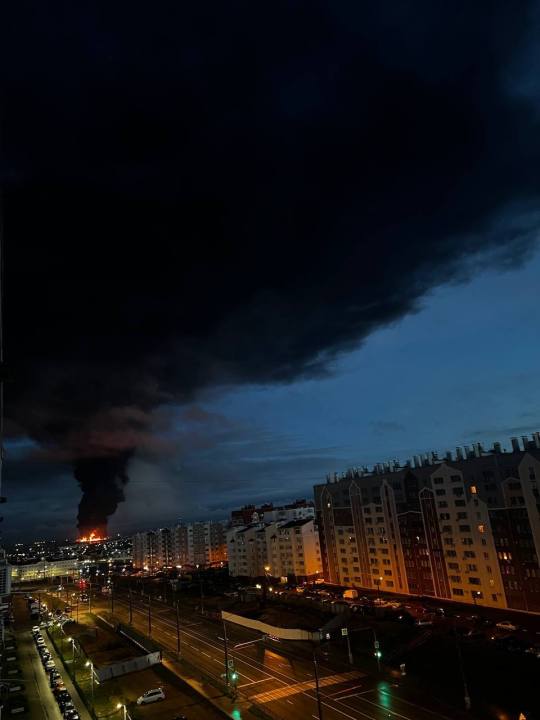
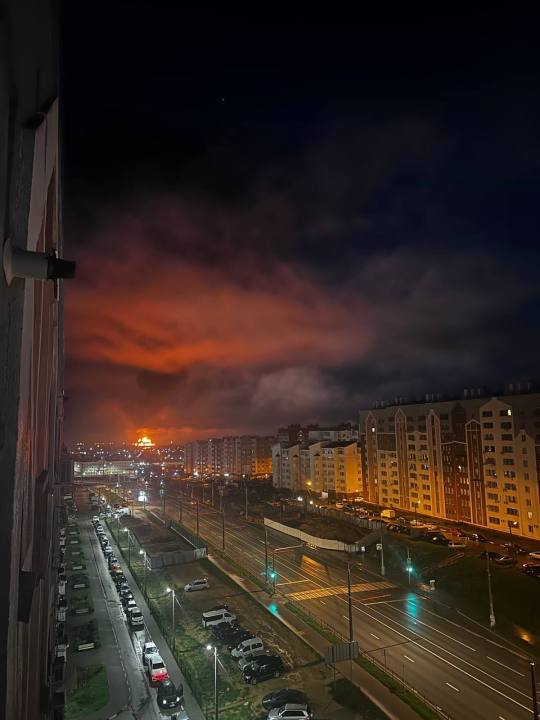
Russian navy oil depot on fire in Sevastopol, Ukraine, April 29, 2023. Source: censor.net
P.S. Crimea, it's Ukraine! All Russian military facilities in Crimea must be completely destroyed before starting to liberate the peninsula from the Russian orcs...
#Ukraine#Sevastopol#Crimea#expensive fossil fuel#urban landscape#demise of big oil#ukrainian independence war#very good news#russian defeat#apartment block#street photography#russian invasion#russian losses
4 notes
·
View notes
Text
If Fire Emblem Had Tumblr Part 2
(part 1)

🪙annablr-staff ☑️
Introducing New Features!
Keep reading
🔪v-a-n-t-a-g-e Follow
WTF ARE THESE NEW FEATURES????
ARE YOU TRYING TO SCAM US????
😈fallenwyvern Follow
this is annablr ofc theyre gonna try and scam us
#smh new users bitching abt annablr are so annoying #yeah no shit its a scam
(946,199 notes)

💜mlm-sewer-assassin Follow
Gods why are the men from Tellius so hot!?!
Like look

ugggggggggghhhhhhhlsslcdk;nakc king cainegusdisisudapdaso sooo hottttt 🤤🤤🤤🤤🤤
🦁the-real-king-of-beasts☑️ Follow
I'll take that as a complement haha
💜mlm-sewer-assassin Follow
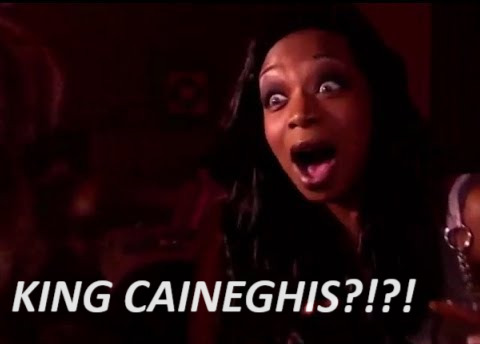
(110,119 notes)

🐴cantocantocantocanter Follow
*Edit* I know on other continents archers can promote to other things but I was thinking about Ylisse, Elyos, and Magvel when making this poll
💘no-i-wont-shut-up Follow
in valentia and fodlan snipers promote into bow knights 😎
🏰armored-general Follow
CAN MOUNTED UNITS SHUT UP ABOUT BEING "THE BEST CLASS"!!!!
NO YOUR NOT!!!!
🪶lighterthanafeather Follow
Youre just jealous that we have a bigger movement range
🏰armored-general Follow
NO IM NOT!
and whats that mov gonna do when you get one rounded by a lvl 6 fighter cause your winged donkey falls apart by a light breeze
🪶lighterthanafeather Follow
Sorry! Can't hear you with that 4 mov!
#armors stop being slow challenge (impossible)
(1,109 notes)

🔫tastemyfeglock Follow
Ugh,, can breidablik STOp summoning fredrick???
I already summoned like 7 of him today!!!
🪨pickagodandprey Follow
what??????? who's breidablik??? why am I being summoned??? I am right here next to my lord in his castle, I'm confused???????
🔫tastemyfeglock Follow
GO AWAY!!! YOURE USELESS!!!!!!!!!!!!
🪨pickagodandprey Follow
Excuse me?? I don't even know you!
🪚sidecharater121 Follow
Hey look! A Fredrick that hasn't been summoned yet
(553 notes)

⚜️youngknightnight Follow
Sorry guys for being inactive for so long,,
I was having family issues,,
basically I'm a sword knight about to promote and I wanna be able to use bow upon promotion but my fucking parents keep insisting on axes but I don't wanna use axes!
They keep saying that "axes are sooooo much better than bows" "we encounter so many lance users, why don't you want that advantage?" or "bows only works at two range, why do you want to be defenseless at one range?" bro stfu let me live! I just wanna use bows OKAY?!
Sorry everyone its just been a lot.
#elitists dni #or I will cut you
(39 notes)

🌠thracianstar Follow
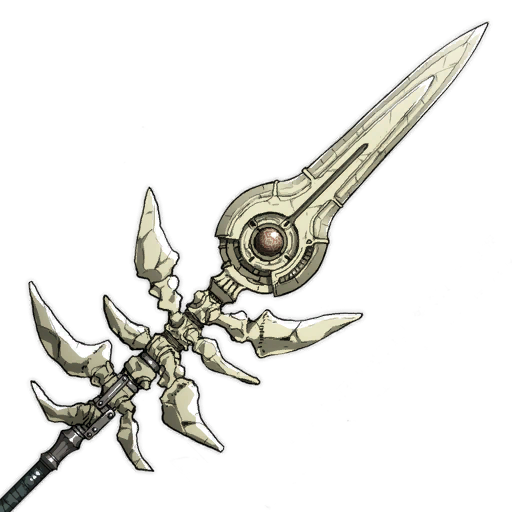
found this weird looking lance an enemy dropped while on my trip in Fodlan.
Gonna try an use it in the next battle!
🎏h-o-l-l-o-w-v-e-s-s-a-l Follow
uhhhh op? I don't recommend using that lance unless you have a crest but your post implies you're not from Fodlan soo uh
don't fucking use it if you wanna live
🐟fishphish Follow
op? op are you there? OP??
🦴️armorcrusher Follow
OP?!?!? OP!!!!!!!!!????? ANSWER US OP!!!!!!!!!!!!!
(437 notes)

🥩singingnmeat Follow

this is the best thing in the world on divine dragon
❤️️crimsonrider Follow
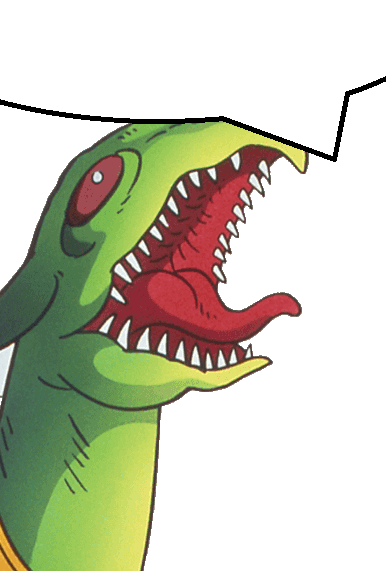
#this is something my wyvern would say if he could talk #anyways #back to hating on my brother
(391 notes)

💚blueplusyellowunit Follow
I found this blueish-white wyvern near Crimea but it wouldn't let me ride it!
It started to thrash around, I had to stop when it started breathing fire
ik you just can't tame a wild wyvern without a lot of time, but the wyvern looked so pretty😭😭😭😭
💭dragon-ggilf Follow
WAIT WAS THAT YOU WHO TRIED TO RIDE ME?!?!?
YOU ALMOST RIPPED OUT ONE OF MY HORNS WHILE TRYING MOUNT ME!!!!
ASSHOLE!!!!
💚blueplusyellowunit Follow
OH SHIT!!!!!!!!!!!!!!!!!!!!!!!!!!!!!!!!! YOURE NOT A WYVERN!!!!!!!!!!!!!!!!!!!
imsorryimsorryimsorryimsorryimsorryimsorryimsorryimsorryimsorryimsorryimsorryimsorryimsorryimsorryimsorryimsorryimsorryimsorryimsorryimsorryimsorryimsorryimsorryimsorryimsorryimsorryimsorryimsorryimsorryimsorryimsorryimsorryimsorryimsorryimsorryimsorryimsorryimsorryimsorryimsorryimsorryimsorryimsorryimsorryimsorryimsorryimsorryimsorryimsorryimsorryimsorryimsorryimsorryimsorryimsorryimsorryimsorryimsorryimsorryimsorryimsorry
(2,330 notes)

😉sranks Follow
I tried to use his lance but my rank was D
😉sranks Follow
easy website
(24,998 notes)

🏋️♂️chop-official Follow
gonna use the devil axe,
wish me luck!
🏋️♂️chop-official Follow
I'm liking my odds!!
🏋️♂️chop-official Follow
cleic
(492 notes)

👺foxythings Follow
Swords are the worst weapon type in my kitsune opinion
🗡theawesomemerc Follow
kys
#you dont even use weapons wtf #how tf should you know
(97 notes)

#analog’s logs#unreality#fake dashboard#dashboard simulator#fire emblem#fire emblem engage#fire emblem three houses#fire emblem echoes shadows of valentia#fire emblem heroes#fire emblem fates#fire emblem awakening#fire emblem new mystery of the emblem#fire emblem shadow dragon#fire emblem radiant dawn#fire emblem path of radiance#fire emblem the sacred stones#fire emblem the blazing blade#fire emblem the binding blade#fire emblem thracia 776#fire emblem genealogy of the holy war#fire emblem mystery of the emblem#fire emblem gaiden#fire emblem shadow dragon and the blade of light#fodlan#tellius#elibe#magvel#jugdral#valentia#archanea
272 notes
·
View notes
Text
During the first months of the Russian invasion, in one of the frontline villages in the southern Kherson region, I met several firefighters – ordinary Ukrainian men in their 40s or 50s. Their prewar tasks involved putting out fires in the local wood or occasionally buildings.
Since the Russian invasion, they save houses burning from missiles and retrieve their dead neighbours. One of the men began to cry during our conversation. He left embarrassed, but shortly returned. I comforted the firefighters, explaining that even governors and mayors sometimes sob during interviews.
In the following months, I travelled from one frontline town to another. I met doctors, policemen, railway and communal workers, journalists, electricians, civil servants, government officials whose relatives are fighting and dying in the army. They escaped or are still living under Russian occupation, their houses and apartments destroyed. They acknowledged that they were emotional, often angry, horrified, but driven by a sense of duty. In the end this would help them move forward, and even be proud of what they did.
Russia invaded Donbas and Crimea in Ukraine in 2014; the country already knew what the war was. But since 5am on 24 February last year, all citizens have learned how to survive when a foreign army uses its might to destroy the peace. They have discovered how to act during an air-raid warning; how to live and work through blackouts; that they should not walk at night because of curfews. They have learned to forget about planes, as airports are closed, and how to be separated from family. People have adapted to many things, and also learned how to deal with emotions: that tears are nothing to be ashamed of. The initial shock and sadness have transformed into a bigger confidence and determination.
As for today – besides hope in victory, national pride, solidarity and compassion, which you see on the surface – one of the prevailing feelings among Ukrainians is guilt that we are not doing enough. In non-frontline towns and in Kyiv, life has returned to a kind of normal. We are preoccupied with thoughts of those who live under constant shelling or occupation. Those who are not in the army think of those who must fight daily; soldiers who survive think of the fallen. Those who left the country feel guilty about those who stayed.
I recently visited a standup comedy performance in a suburb of Kyiv. Self-depreciation is back following months when society was unable to joke about the war. One of the most popular gags is from a comedian comparing his efforts to those of soldiers and veterans. After Ukraine’s victory, he jokes, he would tell his children he spent the war sitting in an Odesa basement, tweeting that Nato should help by “closing the sky”.
Thousands of crimes have been committed by Russian soldiers on Ukrainian soil. The Ukrainian general prosecutor’s office says it has registered at least 71 000 violations of the customs of war. Since then it has become harder to talk to Russian colleagues. By colleagues I mean not propagandists, but just journalists who oppose the Russian invasion and Putin’s regime.
I still communicate with them, but many exchanges end with excuses about why Russian society can do nothing. They think that those who are against the war have nothing to do with the actions of their state. I do believe guilt is not collective, but shared responsibility exists.
Before Russia’s invasion I reported on totalitarian countries: Iran, Syria, China, Belarus. I understand how dangerous it is to protest in a state that is ready to kill its own citizens. The Ukrainians fought against this in revolutions in 2004 and 2014. In the end we built a government that defends its citizens.
It feels paradoxical that Ukrainians, who defend their homeland and are under attack, feel guilty for not doing more. Meanwhile, Russians who are opposed to war are uncomfortable speaking about personal responsibility, stressing that nothing depends on them. This can be explained not by a lack of empathy or bitterness, but by disempowerment and the detachment of Russian citizens. This is something the Kremlin wants from Russian society. Russians who oppose the war must transform their lack of empowerment into action, and find their strength.
Ukrainians have defended their country for 365 days without a break. They have saved many lives from Russian troops. Our task now is to transform a sense of guilt into a sense of duty. We need to preserve our strength.
498 notes
·
View notes
Text
Mistakes in Magnificent Century part I
In part I I would like to speak about mistakes they made while writing characters. Their ages, titles, origins etc.
Let's start with Ayse Hafsa Sultan:
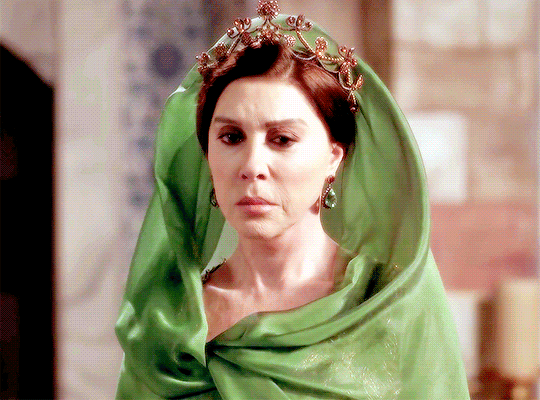
Several things about her were done wrong. First of all, She was not Crimean princess. There are two possibilities that although contradicts one another counters her royal origin. 1. There was another concubine named Ayse,who was daughter of Crimean khan, while she was called Ayse Hafsa for that reason 2.( I agree with that possibility more ) there was no concubine from Crimean family Sultan Bayazid would never let Selim, who was not his favourite, to gain such allie, nor would khan of Crimea risk to marry her daughter to non-favoired prince. Besides, Selim did not have much of a support from Crimea during his Rebellion.
As we more or less agreed that Ayse Hafsa was not Crimean, now we have to agree on where she was from. Legendary mother of the Magnificent sultan was actually converted slave of Caucasian origin, therefore she was either Circassian or Georgian.
Third thing about her is her title. Screenwriters both demoted and promoted her in this case. She was not "Valide Sultan" as we know today, first holder of that title would be Nurbanu 40 years after her death. She was Sultan and respected mother Padisah yes,but those two honours never joined for her. She was simply " Mother of Sultan Suleiman",who had title of Sultan instead of Hatun. While Nurbanu was full fledged "Valide Sultan" and was addressed so. Despite not being Valide Sultan, she was the first slave in Ottoman history, who was elevated to Status of Sultan that was never underlined in the show.
Other mistakes about her are how they represented her pre-1520 life, which I will discuss in Part 3 about "Titles, ranks and traditions" and her relationship with daughters- in law, that will be discussed in part 2, that will be specifically about relationships.
2. Ages of Suleiman's sister.
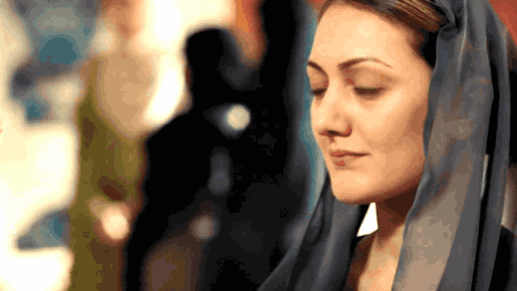
In the show Suleiman Seems to be older, followed by Sah or beyhan, Fatma being somewhat middle and Hatice as baby of the Family, while actually going backwards. One thing I want to make clear is that all the full sisters of sultan were older than them(before 1522 of course), half sister could have been either younger or older. So Fatma, Beyhan and Hatice despite being portrayed as younger sisters were definitely older. A more accurate sequence would be:
Hatice- c. 1490
Fatma: 1491-92
Beyhan: most likely 1493
Suleiman: 1494
Hafsa: 1495
Sah-huban: 1500
Suleiman also had at least three brothers orhan, salih, who seemed to be older than Suleiman, a sister who likely died during childhood and Shehzade sultan or Hanim sultan, who was either another sister or perhaps she never existed and all the little sources about her is actually about hatice.
3. Origin of Sah Huban Sultan.

She was not the daughter of Hafsa and older sister of Hatice, she was actually the youngest of shown siblings,born as the only child of an unknown concubine registered as " The mother of Sah Huban Sultan".
4. Origin of Hurrem

In the show she was portrayed to be Crimean and was addressed as " Russian slave" numerous times. However, she was actually from Ruthenia, it was then part of the Polish crown, now it's part of Ukraine, so definitely not Russian.
5. Forgotten Children
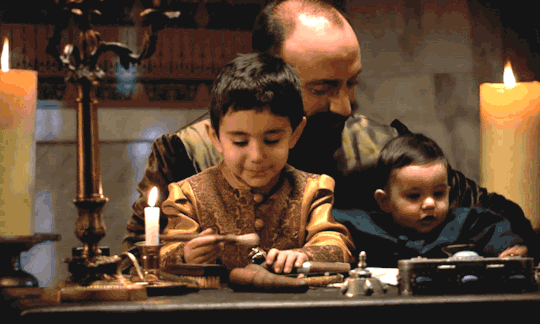
Apart from the six children that were shown in the show, Suleiman had four other children. Three sons and a daughter.
Shehzade Mahmud and Shehzade Murad were born before Hurrem arrived and had different mothers. Mahmud was the eldest born in 1512, Murad was younger than Mustafa born in 1519. Raziye was born between 1513 and 1518, but most likely she was born in 1513-14 as she seems to be the second child and old enough to be considered Mahidevran's(which is by the way false). All three of them died in 1521 as the result of the plague.
The fourth child Shehzade Abdullah was born as the fourth child of Hurrem and Suleiman, born in 1525 and died in 1528. His date of birth is kind of troubling, some historians argue if he was born in 1525,some even say he was Mihrimah's twin, but considering no birth of twins registered, definite ages of other kinds and his appearance in Hurrem's letters Abdullah seems to be born in 1525.
6. Nurbanu's Triplets

Mistakes about the birth of Selim I daughters are more or less clear, let's speak about Selim II as well.
In the show, triplets- Sah, Esmahan and Gevherhan were introduced as younger twin sisters of shehzade Murad. In reality, all three were older but certainly not twins, Sah was not even Nurbanu's daughter, she shared the birth year with Gevherhan though, both were born in c.1544, then was Esmahan in 1545, Murad in 1546, at this point Nurbanu stopped giving birth to any more kids, last of Selim II's kids was Fatma born in 1559.
7. Origin and death of Gulfem hatun
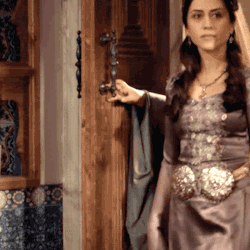
In "Magnificent century" Gulfem is portrayed as Suleiman's first concubine, who bore a son,but lost everything after he died. In reality, Gulfem was one of the highest ranking harem managers, whom Suleiman trusted Hurrem to, she was overseeing her education and well-being, bonding with future Haseki Sultan in the process. Gulfem actually became the closest friend and Confidant of Hurrem, about which I will speak about in part II.
Her death was also portrayed inaccurately. She was not killed for the attempted murder of Suleiman, The closest rumor to it is him executing Gulfem for rejecting him,but she actually died of old age. Suleiman had no reason to execute Gulfem,there is a version were Gulfem exchanges her Night to other concubine to for money to build complex,but there are so many flaws in this theory:
1. There was no such thing in harem as "my turn and your turn"
2. It was strictly against the traditions to call harem servant, especially one from the highest ranks, and considering when it happened in kate nineteen-early twentieth century at caused some probmens,which means tradition was never broken before
3. Gulfem had right to send concubine to Suleiman and even reject one already chosen.
4. Suleiman had no known concubine that time
5. Gulfem was not building anything as all of her projects was already finished.
6. Even if she was building something, it would cost so much mere concubine would never have enough money to help it. Gulfem's daily stipend was 150 akches, which is almost four times as much as Mahidevran's and almost as much as imperial princesses', while titles concubines were receiving 1-6 depending on their status.
7. Even if she needed something she would ask it to either Suleiman, Mihrimah or Sah huban as we know it had happened before and they thought her as family member.
8. Even if we just jump these 7 reasons and somehow accept that Suleiman realy called her that night , he would never kill her for that, she broke no rule, she needed money for project, he would understand this.
9. Gulfem was childhood friend of Suleiman, she was already a high ranking woman when mahidevran came,so she was certainly older than her,who was likely born in 1498-99, she was even older than Suleiman most likely. She was a childhood friend of one of Suleiman's sisters so her date of birth could vary from 1490 to 1493. That would make her between 69 and 72 in 1562. Dieing at such age is nothing strange even today, live past 60 was actually achievement in her era. There is no need to look for intrigue where there is none. Several theory existed,but show chose most dramatic one,that happened to be least likely.
8. Safiye's arrival

I have nothing against the portrayal of her origin, but about how she got in Murad's harem. Accord- ing to MC she was Mihrimah's gift. However,in real life she was raised and educated at Humaşah sultan's court,who later gifted Sifiye(then called Meleki) to her cousin.
9. History of Kösem

In Magnificent Century Kosem young Anastasia was kidnapped as a gift of Safiye to Ahmed per his accession. Actually, Kösem, then called Mahpeyker, was a servant of Handan Sultan and met Ahmed in his mother's personal Gardens. Ahmed developed a "Childhood crush" towards her and Handan,aware of what it could cause, had Kösem beaten up and exiled. When Ahmed ascended her recalled her and brought back.
10. Another forgotten child.

In the show, Şehzade Mehmed died without any kids, while in reality, he had a posthumous daughter born in 1543 named Humaşah. Who grew up to be one of the most powerful women in the Ottoman empire. She was one of two favourite grandchildren of Suleiman and Hurrem and due to the death of her father, she was raised in the household of her grandmother, so she would have been deeply involved in their later life. However, her existence was completely cut out, while the role and importance of Ayse Humaşah, daughter of Mihrimah Sultan was reduced into nothingness.
#history#16th century#historical drama#magnificent century#magnificent century kosem#mc: kosem#medieval women#hurrem sultan#kosem sultan#safiye sultan#nurbanu sultan#gulfem hatun#sultan suleyman#ottomanladies#ottoman history#ottoman#ottoman empire#ottoman sultanas#historical figures#historical events#haseki hurrem sultan#ayse sultan#valide sultan#historical fiction
134 notes
·
View notes
Text
This is not my text but a translation of a text originally posted here.
Give the author on twitter a like, a reblog and a follow while you are at it.
"Today commemorates the death of Noman Çelebicihan, a leader of the Crimean Tatar people.
January 26, 1918, he was imprisoned as the result of the Red Terror, and a month later, on February 23, in Sevastopol (Aqyar) they shot him and threw his body into the sea.
I will talk about why it is important to learn about him, below.
Noman Çelebicihan was the one who revived the tradition of Qurultay, a national democratic assembly.
It was under his leadership that the Crimean Tatar self-awareness began to flourish for the first time since the annexy of Crimean Khanate (1783).
During the February Revolution of year '17, demand for self-awareness in society is growing, and in April, Çelebicihan becomes a comimissioner of spiritual leadership and first democratically elected mufti of Crimea. This was when he also became the first Mufti of Muslims of Lithuania, Poland, and Belarus.
Meanwhile, the Muslim Executive Committe becames the main executive body of the government.
In Summer 1917, Crimean national military units began to form, the so called Squadrones. Çelebicihan then calls for a formation of Muslim Armed Forces.
December 1917, Qurultay has declared Crimean Democratic Republic, founders of which were Çelebicihan and like-minded individuals. This was also when they adopted a democratic Constitution drafted by him, Cafer Seydamet and other peers.
It talked about electoral right for everyone, any and all class ranks or titles were canceled, as were their priveleges, it asserted equal rights of women and men, established regulations on assembly of parlaiment. A regulation on election of national government - Directory - was also established.
Çelebicihan, as well as Cafer Seydamet (who became a minister of foreign affairs and military minister), maintained connections to Central Council of Ukraine (Ukrainian Central Rada). In Spring 1917, by an invite of the Central Council, Crimea sent 10 people in a delegation to participate in the work of the Congress of Nations (Congress of the Enslaved Peoples of Russia) in Kyiv.
Apart of all that noted above, Çelebicihan lifted the obligation of Crimean Tatar women to wear a veil, which led to a wave of disconent from conservative part of populatoin.
At the Congress, he declared and advocated for the equality of all nations that live in Crimea: "Our mission is to create a state like Switzerland. Nations of Crimea are a beautiful bouquet, and every nation needs equal rights and conditions, because we are to walk side by side."
It is thanks to Çelebicihan that a women's gymnasium (a school) and technical school were opened in Simferopol (Aqmescit), that a Pedagogic Institute based on Zıncırlı medrese was opened, and that there were established short-term advanced training courses for teachers.
In addtion, he was a writer and a poet, one of his most known works is "A Prayer for Swallows", and his poem-pledge Ant Etkenmen is now a national anthem of all Crimean Tatars.
You can find the lyrics and a modern translation today in the Kitap Qalesi publication
instagram
Listen to it here:
youtube
Bolsheviks seizing power endangered the existence of Crimean People Republic.
January 4, 1918, Çelebicihan took initiative to rsign from the positions of leadership.
Due to attempts to negotiate with Bolsheviks about the cessation of armed struggle in Crimea, on January 18, 1918, they took over the government in Simferopol (Aqmescit), arrested Çelebicihan and transported him to Sevastopol (Aqyar) in an airplane. February 23, 1918, he was shot in the city prison.
This is not the full list of what Çelebicihan has become famous for, in a fairly short time. He wrote poetry, published papers, organized an underground society for Crimean Tatar youth in İstanbul, there were also other changes that were introduced in the Republic."
A longer text is to come, and the author plans to publish it on her blog on Drukarnia. It already has an awesome post on where to learn Crimean Tatar language. And while it's in Ukrainian, most browsers, whether on mobile or PC, support auto translation. I translated this thread just because twitter makes it really tedious to read threads in other languages. So like. Subscribe and support the author!
26 notes
·
View notes
Text
it's astounding how left internet types of a certain ideological bend have kept quiet about the war only to come out of the woodworks now, again, to condemn the crimea bridge sabotage as "terrorism." every time ukraine liberates even a small settlement is bittersweet, because shortly thereafter some horrific mass grave or evidence of torture comes to light. russia blew up an apartment building for no strategic reason and killed at least thirty people yesterday evening—is that not terrorism?
#i dont post about the atrocities but they are deeply horrific#likewise i stopped caring about the subject of the post but the hypocrisy on display
356 notes
·
View notes
Text
Irina Alexandrovna Romanova (1895 -1970)
When Grand Duke Alexander Mikhailovich married Grand Duchess Xenia Alexandrovna (sister of the then Tsarevich Nicholas Alexandrovich), he was marrying one of the best matches in Europe: Xenia was the daughter of the Tzar Alexander III and the sister of the future Tzar Nicholas II. She had been in love with "Sandro," her second cousin, since childhood (and he saw no reason to discourage her affections, of course)
Sandro and Xenia had seven children. Irina was their first child and only daughter. This beautiful, quiet, delicate child was the first grandchild of Alexander III (who died the year before she was born) and would be the only biological niece of Tzar Nicholas II.

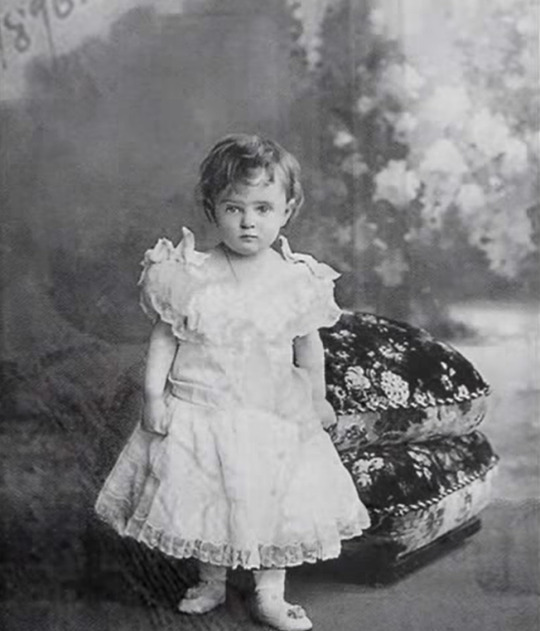
During the first few years of their respective marriages, the Tzar and Empress Alexandra and Grand Duke Alexander and Grand Duchess Xenia spent a lot of time together, and their daughters Olga and Tatiana, and Irina being very close in age, spent a lot of time together and developed a relationship. Distance would later grow between the couples and the children.
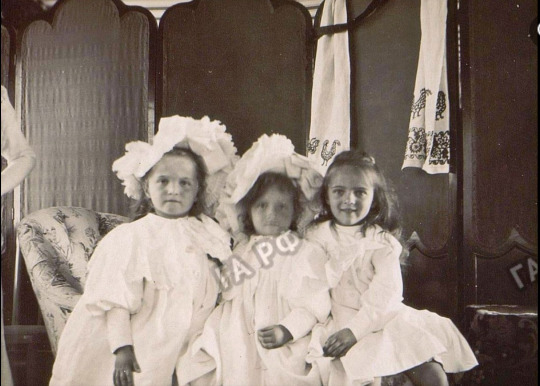
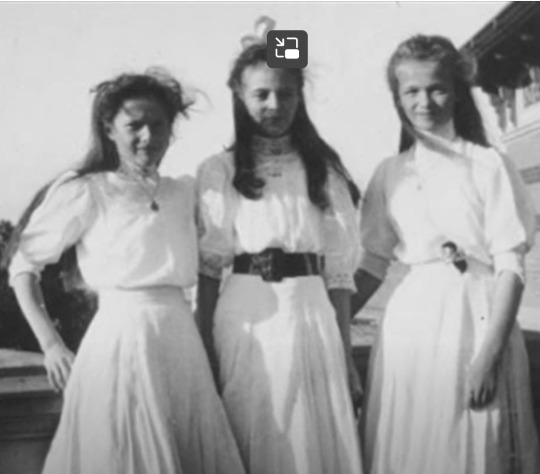
By the time Xenia was pregnant with her seventh child, her marriage to Sandro had gone sour. Sandro had fallen in love with a French/Spanish woman and was having an affair with her. Subsequently, Xenia started an affair of her own. Some sources say that they managed to keep their marital problems from their children; others that their quarrels might have had something to do with Irina's decision to marry Prince Felix Yusupov when he asked.
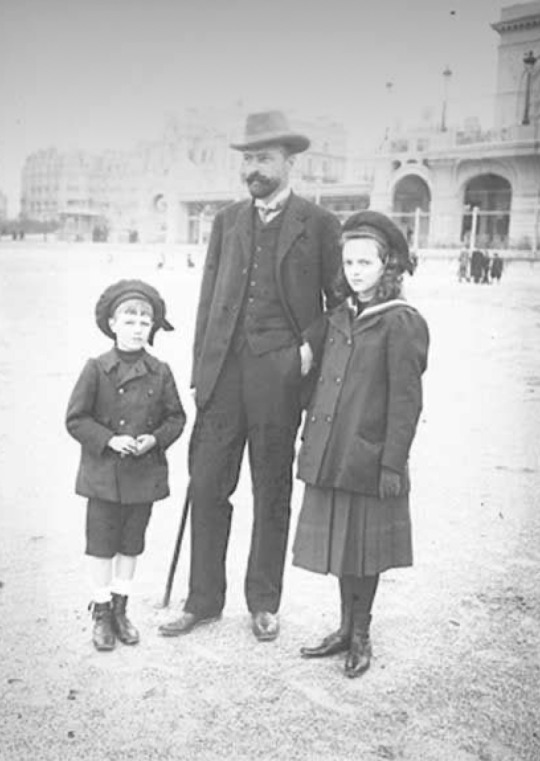

Felix was handsome, extremely smart, and one of the richest men in Russia, but he had a reputation. Irina accepted him as a bridegroom regardless of her parents' misgivings. Felix had a wild youth which seemed to include affairs with men and women. He enjoyed dressing as a woman and wearing his mother's jewels; apparently, he even caught Edward VII's eye at some point. When the Dowager Empress Maria Feodorovna talked with him about this behavior before his marriage to Irina, he did not deny it. Still, he said that his wild days were over, and he was very much in love with Irina.


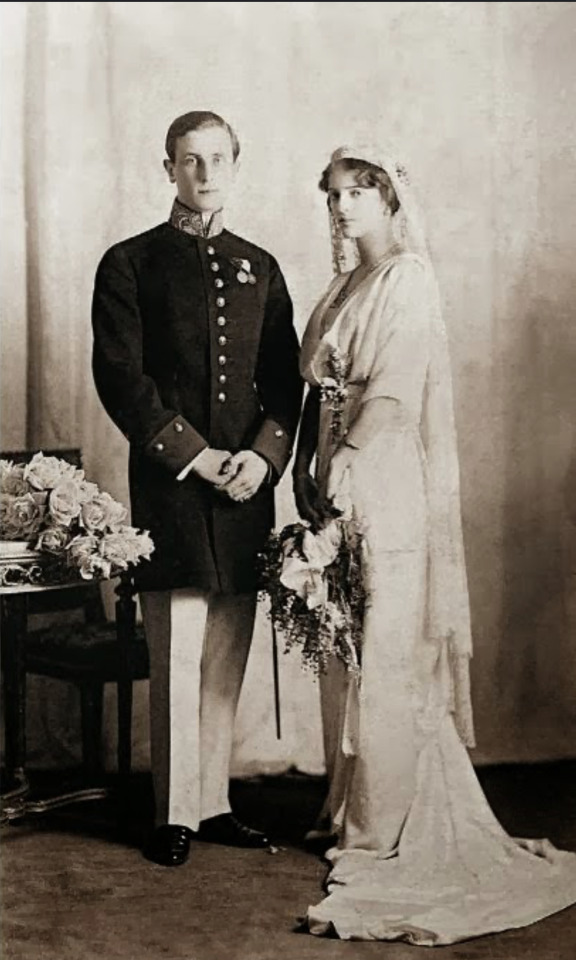
Irina had no qualms about signing away succession rights for their future progeny when she married Felix, who was not royal (their marriage was morganatic.) She married him wearing a veil that had belonged to Marie Antoinette. Both looked beautiful. Their wedding was the last grand happening (1000 guests) before the Great War.
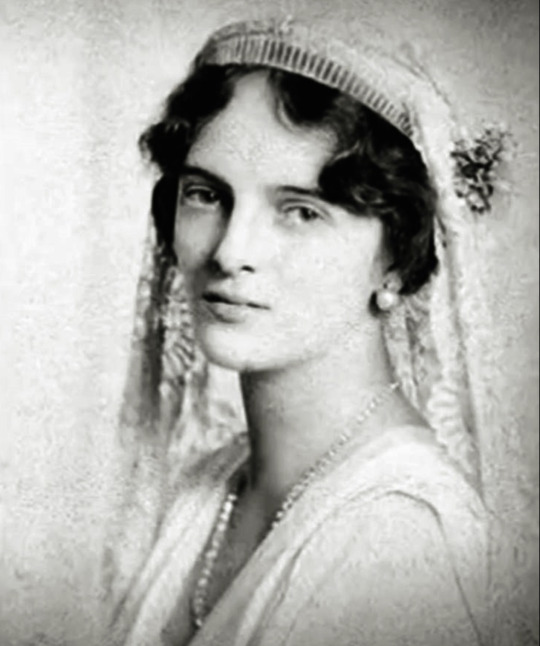
Felix and Irina were out of Russia when WWI started and had difficulty passing through Germany to return to Russia.
The Yusupovs settled in a section of Felix's parents' Moika Palace. Felix and Irina had one daughter (whom they named Irina but called "Bebe") and helped the war effort in Russia by opening two hospitals and a sanatorium in their Crimean state of Koreiz.
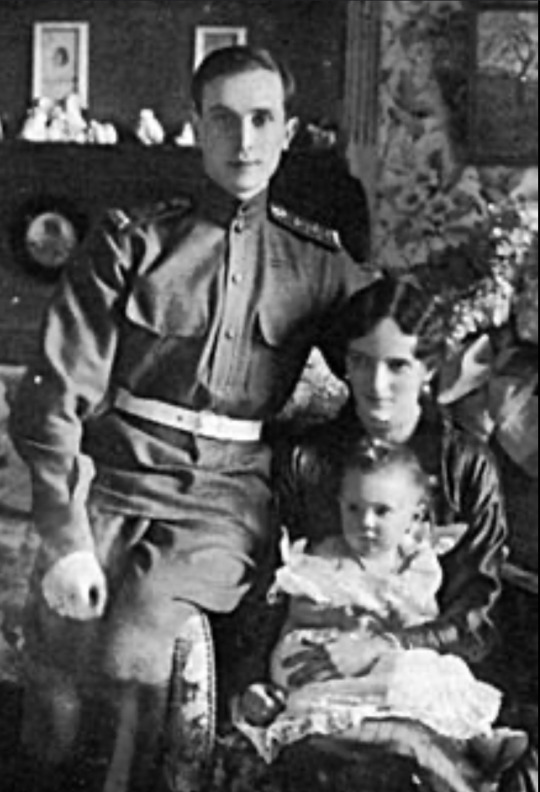
Felix would go on to kill Rasputin (he was banished to Koreiz by the Tzar) in a misguided effort to help the dynasty survive. As things in Russia became worse. A group of members of the Imperial Family, including the Dowager Empress, Irina's parents and brothers, and several Grand Dukes and their families, avoided being imprisoned and murdered by seeking shelter in Crimea. The Russians held them, prisoner until the Treaty of Brest-Livtosk was signed. Interestingly enough, the Germans liberated them. They left Russia in a warship sent by England to rescue the Dowager Empress.
They lived in an apartment Felix had in London; they had also smuggled out paintings and jewelry. There was a car they had not used in years waiting in a garage in Paris. The couple was extremely generous to the Russian Community and gave a lot to the exiles in need. They eventually bought a mansion in Paris and opened a couture house in Paris, which was very successful for a few years.


Felix and Irina lead an expensive lifestyle, and their couture business went bankrupt (after significant success.) By 1934, as luck would have it, Metro-Goldwyn-Mayer released a film named "Rasputin and the Empress." Felix sued the company for slandering Irina and won the lawsuit. He also released two books which did very well.
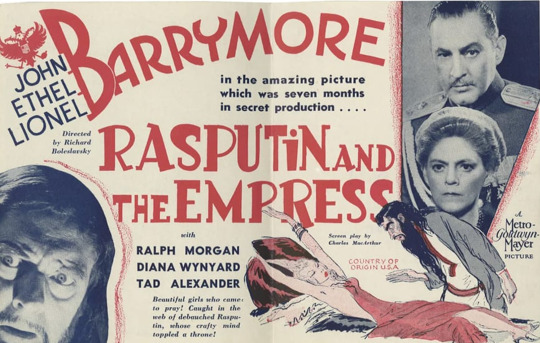
After this, the coupled lived a quiet life (for them), supporting young artists and attending various functions of the Russian emigre community.
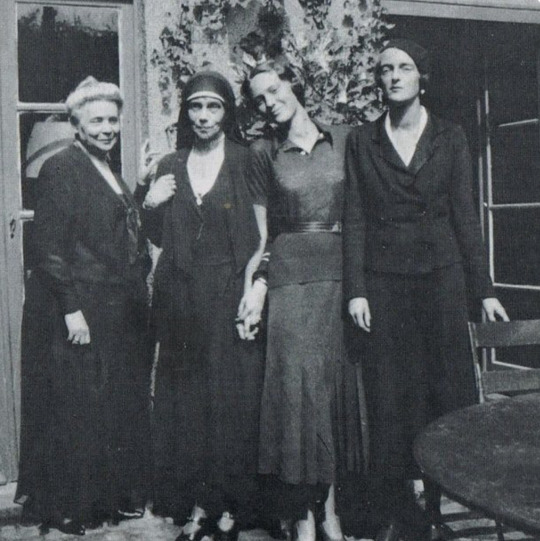

Irina remained close to all her relatives and helped them whenever she could. Her father, Grand Duke Alexander Mikhailovich, died in her arms.
Felix's and Irina's marriage turned out to be a great success. They were married and lived together, supporting and caring for each other for over fifty years. When Felix died in 1967, Irina was grief-stricken. She died three years later.
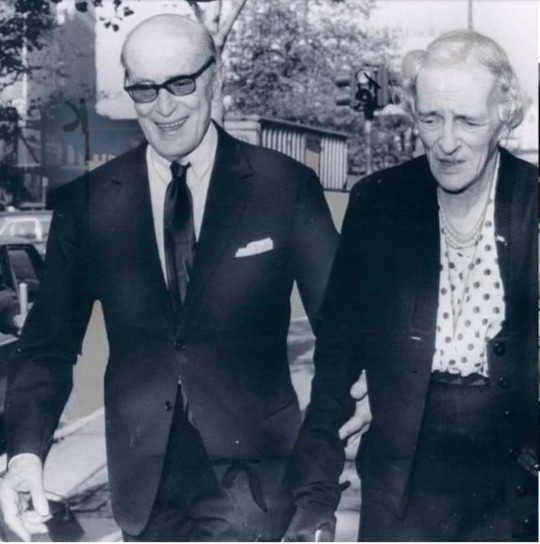

#russian history#romanov dynasty#Imperial russia#NAOTMA#Grand Duchess Xenia Alexandrovna#Princess Irina Alexandrovna#Prince Felix Yousupov#IRFE#Grand Duke Alexander Mikhailovich
91 notes
·
View notes
Text
Harrowdown Hill | John Spinks


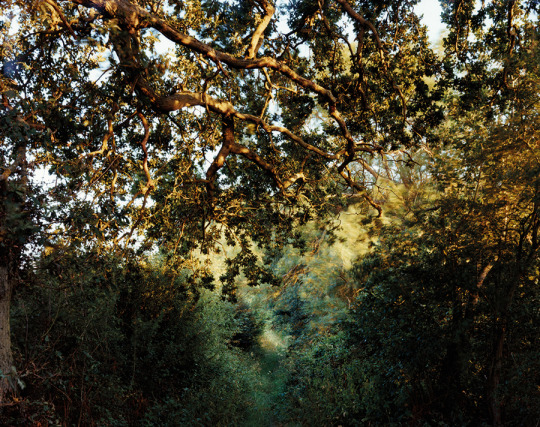




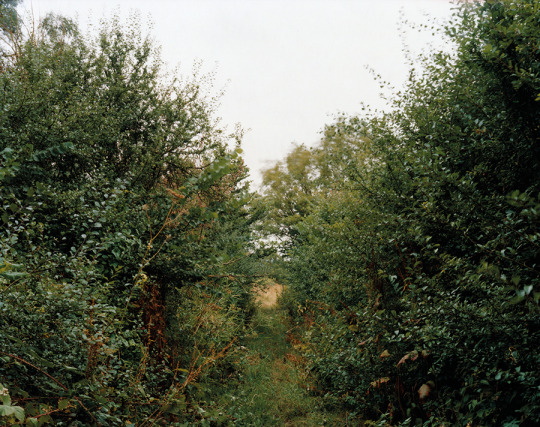



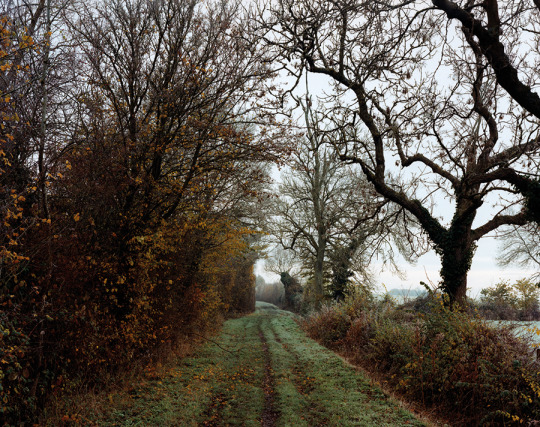

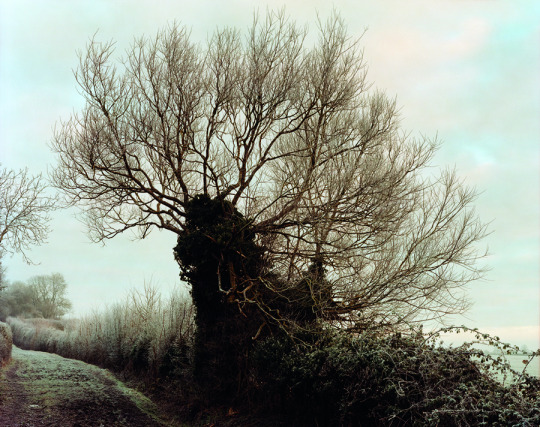
I started work on Harrowdown Hill in 2008, the final pictures were made at the end of 2014.The photographs that appear in the book were made from July 2013 to July 2014.
My interest in the Kelly story began very simply. From reading contemporary reports I understood what had happened as an example of institutional bullying. the research I subsequently undertook revealed a more nuanced and detailed picture of two institutions (the BBC and the Blair government) engaged in a struggle to control competing narratives, how that struggle played out and how events developed a momentum of their own that became impossible to control.
The circumstances around his death are the starting point for a series of photographs of Harrowdown Hill in Oxfordshire where Kelly died on the 17th of July 2003.
I visited Harrowdown Hill once a month for a little over a year, making multiple pictures of the same eight or so locations on each visit. At each place I would make a photograph, sometimes I would make a second or third, they might be made a few seconds, minutes, hours, or eventually months apart. By doing this I was hoping to create a sense of time dilating and compressing that would enable the viewer, through the changes in light, weather, and season, to 'move' backwards and forwards in time. Through these multiple iterations of specific views, the viewer is lulled, then brought up sharp, and then again lulled by the rhythms of time and nature.
Photography has often been used to record sites of significance, places where things have happened in the near or distant past. It’s a long tradition stretching back as far Roger Fenton’s pictures of battlefields in Crimea in the 19th Century. Very often this way of working relies upon a single image resulting from a single visit to a site. Given the complexity of the Kelly story, I wanted to examine Harrowdown Hill and the meanings it has accrued more rigorously. By developing a process of repeating images during repeated visits my hope is that the pictures start to resonate in such a way as to deepen and intensify the experience of viewing the work.
The Kelly affair crystallised a political moment for me, it led me to think about the role of the landscape in shaping ideas of nationhood, how images of the land have a powerful emotional pull and how at certain times in our national story that connection can be used to animate troubling responses. Most importantly, I think that the death of David Kelly symbolises a shift in British politics. Jonathan Coe in his novel Number 11 wrote 'this was not an ordinary death, it would have consequences, send ripples of unease and mistrust throughout the country. That Britain would be a different country from now on: unquiet, haunted.'
website
instagram
book - ‘Harrowdown Hill’ is John’s latest photobook release, and is an absolute beauty of a book... photography to immerse yourself in, and feel a real sense of ‘place’. The book production matches the wonderful work within. Highly recommended folks! See some sample spreads below...

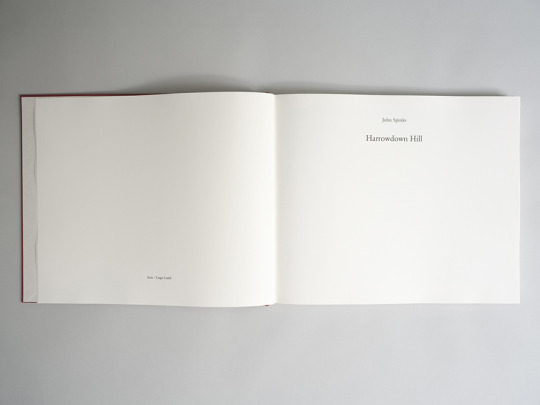


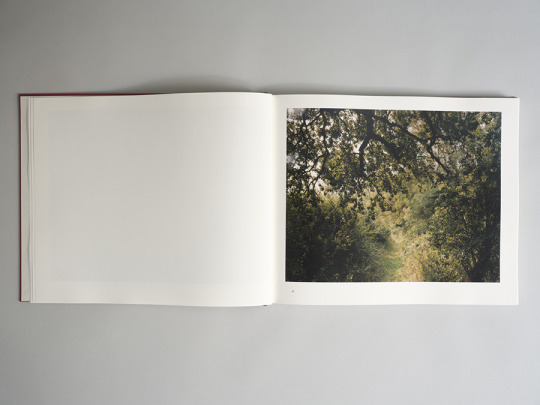
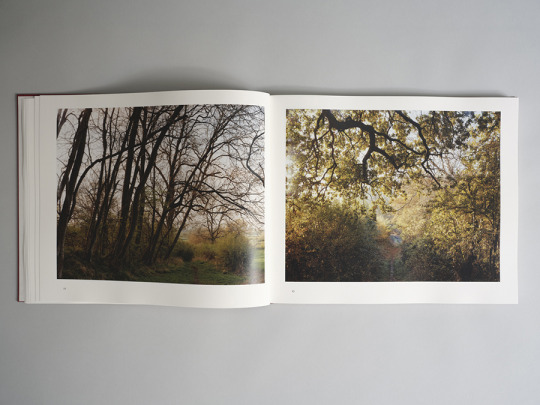

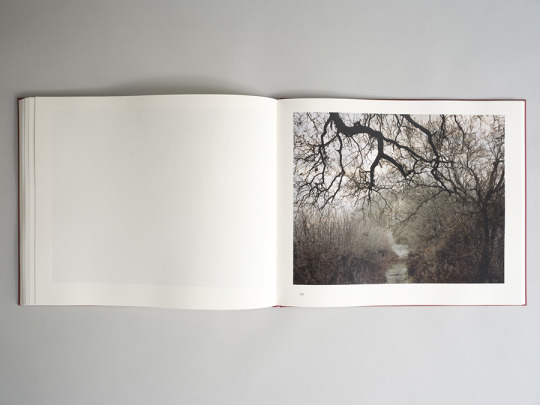

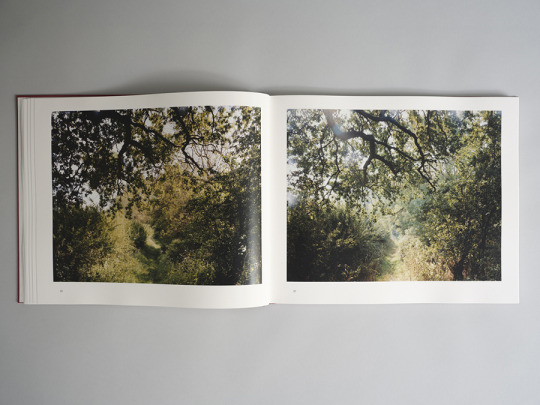

All images & text © John Spinks
64 notes
·
View notes
Text
Rashid is Armand, and I will stand by this theory until the show proves me wrong
So I gave it one week to think about it, and I am fully on the Rashid is Armand theory train. Reasons?
1. Having Armand go by the name of a minor character from Marius’ backstory (Blood and Gold) hints at the character's ties to Marius in a small way before the reveal that his ties to Marius are even bigger than that.
2. Not only does he always wear gloves and never stands in direct sunlight, but he’s also the only other person in the penthouse besides Louis who doesn’t wear a mask around Daniel. The pandemic has been mentioned more than once, with Louis specifically saying Daniel is immunocompromised in EP1. All the other household staff we see - particularly during the 7-course dinner scene - wear masks. Rashid never does, even when standing near Daniel in EP4. This hints that Rashid isn't human - like Louis, he isn’t going to pass the virus to Daniel because he’s already dead.
3. What about his eyes, you say? The simple answer is that he’s wearing contacts to hide his eyes. The more intriguing answer to me, however, is that Armand is actually using the Spell Gift on Daniel to make Daniel not notice what his real eyes are like. Because, and this is key, all the modern-day 2022 scenes are told from Daniel’s POV. The whole tv series opens with Daniel, establishing him as the POV character for all the 2022 scenes. So when we see Rashid’s eyes, we see them as Daniel sees them, not for what they really are.
4. But why is Rashid worshiping/serving Louis as a God, you ask? Well, he’s not. When Daniel directly asks Rashid about Louis being his god, Rashid doesn’t answer the question and changes the subject. Rashid has never directly said that he specifically worships Louis; it’s only what Daniel inferred. (Again, all the 2022 scenes are from Daniel’s POV.)
5. But then, why is Armand hiding his identity? Well, he’s hiding it from Daniel. And why is he hiding it from Daniel? Well, because The Devil’s Minion event already happened between him and Daniel. I want to shout-out @alwynwitch , who gave an awesome theory/breakdown of this theory of how The Devil’s Minion event could have already happened in the AMC universe. Basically, Armand let Daniel go instead of turning him. And Armand used the Spell/Mind gift to alter Daniel’s memories when he did so, so Daniel doesn’t remember any of it. As Daniel said in the first episode, he doesn’t even remember the interview between him and Louis in 1973.
The reason he doesn’t remember isn’t just because of the drugs.
But we are set to get a flashback to that first interview in EP6. And I think that is because Daniel’s memories will start fully returning to him, beginning in EP6. We got a set-up for it in EP4, with Daniel saying he’s been dreaming of Polynesian Mary’s, the gay bar he and Louis first met at, ever since he got the tapes back.
But neither Louis nor Rashid/Armand want to break Daniel’s mind in one go if/when the memories came back, especially by explaining it all to him all in one go. Hence, the slight subterfuge wrt Rashid’s real identity.
I don’t expect to see the full Devil’s Minion story in EP6 or EP7 btw. That is totally something that would happen/be shown in S2, if this turns out to be true. But I wouldn’t be surprised if EP6 ended with Daniel remembering he’d met Rashid before in the 70s, too, just like he did Louis. (EP7 is when they’d fully reveal his identity IMO).
6. And of course, there are the other specific things - the Crimea/Ukraine connection and Rashid being shown to be religious - Muslim in this case instead of Christian like book-Armand, but still religious.
7. That apartment? Again, will not be at all surprised if the place is actually Rashid/Armand’s, because it is very much more his style than Louis’ (going by the books, at least). Very much Night Island or what little I’ve read about Trinity Gate so far. (I’ve just started the Prince Lestat trilogy. Before now, the last book I read in the Vampire Chronicles was Blackwood Farm, back when it was first published, and then I stopped reading the series.) It feels like Trinity Gate, but in Dubai instead of New York.
* * *
So yeah, those are my reasons for backing the Rashid-is-Armand theory. Just looking at everything, it just makes so much sense to me for now.
#Rashid#Armand#Daniel Molloy#Louis de Pointe du Lac#Interview with the Vampire#amc interview with the vampire#amc iwtv#iwtv#meta#theory#The Vampire Chonicles
167 notes
·
View notes
Text
Things I Didn't Know I Loved // Nazim Hikmet
it’s 1962 March 28th
I’m sitting by the window on the Prague-Berlin train
night is falling
I never knew I liked
night descending like a tired bird on a smoky wet plain
I don’t like
comparing nightfall to a tired bird
I didn’t know I loved the earth
can someone who hasn’t worked the earth love it
I’ve never worked the earth
it must be my only Platonic love
and here I’ve loved rivers all this time
whether motionless like this they curl skirting the hills
European hills crowned with chateaus
or whether stretched out flat as far as the eye can see
I know you can’t wash in the same river even once
I know the river will bring new lights you'll never see
I know we live slightly longer than a horse but not nearly as long as a crow
I know this has troubled people before
and will trouble those after me
I know all this has been said a thousand times before
and will be said after me
I didn’t know I loved the sky
cloudy or clear
the blue vault Andrei studied on his back at Borodino
in prison I translated both volumes of War and Peace into Turkish
I hear voices
not from the blue vault but from the yard
the guards are beating someone again
I didn’t know I loved trees
bare beeches near Moscow in Peredelkino
they come upon me in winter noble and modest
beeches are Russian the way poplars are Turkish
“the poplars of Izmir
losing their leaves. . .
they call me The Knife. . .
lover like a young tree. . .
I blow stately mansions sky-high”
in the Ilgaz woods in 1920 I tied an embroidered linen handkerchief
to a pine bough for luck
I never knew I loved roads
even the asphalt kind
Vera's behind the wheel we're driving from Moscow to the Crimea
Koktebele
formerly “Goktepé ili” in Turkish
the two of us inside a closed box
the world flows past on both sides distant and mute
I was never so close to anyone in my life
bandits stopped me on the red road between Bolu and Geredé
when I was eighteen
apart from my life I didn’t have anything in the wagon they could take
and at eighteen our lives are what we value least
I’ve written this somewhere before
wading through a dark muddy street I'm going to the shadow play
Ramazan night
a paper lantern leading the way
maybe nothing like this ever happened
maybe I read it somewhere an eight-year-old boy
going to the shadow play
Ramazan night in Istanbul holding his grandfather’s hand
his grandfather has on a fez and is wearing the fur coat
with a sable collar over his robe
and there’s a lantern in the servant’s hand
and I can’t contain myself for joy
flowers come to mind for some reason
poppies cactuses jonquils
in the jonquil garden in Kadikoy Istanbul I kissed Marika
fresh almonds on her breath
I was seventeen
my heart on a swing touched the sky
I didn’t know I loved flowers
friends sent me three red carnations in prison
I just remembered the stars
I love them too
whether I’m floored watching them from below
or whether I'm flying at their side
I have some questions for the cosmonauts
were the stars much bigger
did they look like huge jewels on black velvet
or apricots on orange
did you feel proud to get closer to the stars
I saw color photos of the cosmos in Ogonek magazine now don’t
be upset comrades but nonfigurative shall we say or abstract
well some of them looked just like such paintings which is to
say they were terribly figurative and concrete
my heart was in my mouth looking at them
they are our endless desire to grasp things
seeing them I could even think of death and not feel at all sad
I never knew I loved the cosmos
snow flashes in front of my eyes
both heavy wet steady snow and the dry whirling kind
I didn’t know I liked snow
I never knew I loved the sun
even when setting cherry-red as now
in Istanbul too it sometimes sets in postcard colors
but you aren’t about to paint it that way
I didn’t know I loved the sea
except the Sea of Azov
or how much
I didn’t know I loved clouds
whether I’m under or up above them
whether they look like giants or shaggy white beasts
moonlight the falsest the most languid the most petit-bourgeois
strikes me
I like it
I didn’t know I liked rain
whether it falls like a fine net or splatters against the glass my
heart leaves me tangled up in a net or trapped inside a drop
and takes off for uncharted countries I didn’t know I loved
rain but why did I suddenly discover all these passions sitting
by the window on the Prague-Berlin train
is it because I lit my sixth cigarette
one alone could kill me
is it because I’m half dead from thinking about someone back in Moscow
her hair straw-blond eyelashes blue
the train plunges on through the pitch-black night
I never knew I liked the night pitch-black
sparks fly from the engine
I didn’t know I loved sparks
I didn’t know I loved so many things and I had to wait until sixty
to find it out sitting by the window on the Prague-Berlin train
watching the world disappear as if on a journey of no return
19 April 1962
Moscow
#poetry#Nazim Hikmet#Turkish poetry#Ottoman poetry#Salonika#Thessaloniki#Moscow#Izmir#loving the world anyway#poems of praise#despair#the beautiful earth#love#poplars#moonlight#rain#apricots#1962
12 notes
·
View notes
Text
2023 is almost over
What a shitshow of a year that was
People are making year-end lists. What they have acheived, where they failed, what drove them and brought them joy.
I don't want to talk about myself. My 2023 was weird and complicated, but, ultimately, it still hinged on one word.
War.
Russia-Ukraine war has been going on for almost two years now. It upended the lives of so many people on both sides of the border. Created refugees, emigrants, political prisoner.
Corpses. Broken families.
Broken dreams.
So many people, young and old, had their lives ripped out from under them. They will never live to fullfill their potential. They will never do that cool thing they were putting off. They will never hug their loved ones again.
Whether they were torn apart by borders or by death's merciless grasp, life will never be the same again.
This was also the year of disillusionment for me and so many others.
Russian opposition devolved into infighting and doesn't seem to have a good idea as to what to do next.
Russian armed forces had time to patch up the holes in their defences and logistics and withstood the Ukrainian counter-offensive.
Western Ukrainian allies dragged their feet.
Ukrainian politicians themselves... Look, the less I talk about them, the better.
I dreamed that Crimea would be retaken by now. Or that Putin's regime would fall.
But the fighting still rages on with no end in sight. Corpses are mounting on both sides.
Two days ago Russia launched one of the biggest attacks on civilian targets in Ukraine.
Yesterday Ukraine responded with an attack on a Russian city.
Civilians died. People died. Were they Russian or Ukrainian barely matters at this point.
And I know that if Putin is not stopped, things will only get worse.
But I also have no idea how anyone will ever be able to stop him. Except, maybe, old age. But even then I'm not sure that the system he's built will not outlive him.
...
Today I'm writing from the place of highest personal comfort I've experienced in years. My own life has improved by leaps and bounds over 2023.
And all I can feel is immense guilt. Because I feel like my hands are also drenched in blood, even if not directly.
In a way, none of this feels real. Maybe, just maybe, tomorrow we all will wake up in 2019. Better yet, 2012. Before all of this.
But unless that happens...
Happy New Year, everyone. May your skies be peaceful. May your dreams come true.
10 notes
·
View notes
Text
On January 9, 2024, Swedish defense chief Gen. Micael Byden stood on a stage in Salen, Sweden, and gave a presentation intended to shock. Projecting a series of grisly images from the front lines of the Ukraine War, overlaid on a backdrop of snowy Swedish field, he asked: “Do you think this could be Sweden?”
Until February 2022, these questions would be unimaginable for a country that has maintained a careful 75-year strategy of peaceful nonalignment toward NATO. In a 2012 speech, the supreme commander of Sweden’s military at the time, Sverker Goranson, said that, in the event of an attack, “Sweden can survive for a week.” But at this recent Society and Defense Conference in Salen, leaders made it clear that the era of de-emphasizing defense was over. There, Swedish Prime Minister Ulf Kristersson urged his citizens to prepare to defend themselves “with weapons in hand and our lives on the line.”
For Russia’s Scandinavian neighbors, the full-scale invasion of Ukraine disrupted a cool calculus of neutrality. Last year, Finland became NATO’s newest member, with Sweden likely soon to follow, pending approval from Hungary. These new northern alliances are shifting the geopolitical power balance, with Arctic NATO nations soon outnumbering Russia seven to one. And, just as the melting Arctic ice opens new resources and routes for global economic competition, it also exposes new defensive vulnerabilities.
Today, as Ukraine and its NATO allies push Russia into a corner, global leaders—together with Scandinavians themselves—are increasingly turning a troubled gaze north. They’re asking: How likely is escalation in colder climes?
“The increasing competition and militarization in the Arctic region … is worrying,” NATO military committee chair Adm. Rob Bauer said in an October 2023 speech at the Arctic Circle Assembly in Reykjavik, Iceland. “We must be prepared for military conflicts arising in the Arctic.”
“Low tensions in the High North”: so have global leaders and analysts referred to a post-Cold War period of relative polar stability. For the past several decades, bilateral and international agreements between Russia and other Arctic states have emphasized shared northern security as well as scientific and safety interests. But after Russia’s full-scale invasion of Ukraine, these arrangements quickly fell apart. In March 2022, the Arctic Council, a forum between the eight Arctic states, suspended talks. (In May 2023, it cautiously resumed but has yet to make Russia’s involvement clear.) In September 2023, Russia left the smaller Barents Euro-Arctic Council with Norway, Finland, and Sweden—saying the Scandinavian states had “paralyzed” cooperation. In February 2023, Russia amended its Arctic policy, emphasizing new alliances with other BRICS (Brazil, Russia, India, China, and South Africa) nations, particularly China. That month, it also suspended participation in New START, the last remaining nuclear arms control agreement between the United States and Russia.
“There’s this post-Cold War political idea of ‘Arctic exceptionalism,’ that the north is excepted from developments in global politics,” said Rasmus Bertelsen, the Barents chair in politics at the Arctic University in Tromso. “The problem is, it’s never been valid.”
Look a little closer at the past decades, Bertelsen said, and you’ll see a Russian Arctic strategy that closely follows its global agenda. In 2007, Russian President Vladimir Putin’s speech at the Munich Security Conference firmly rejected a U.S.-led, post-Cold War global order of stability. That same year, Russia launched its first cyberattack on Estonia and made a bold Arctic territorial claim by planting a Russian flag in the seabed below the North Pole. Putin has also concentrated militarization around the High North. Since 2014, the year Russia annexed Crimea, Russia has steadily grown a northern fleet of nuclear submarines, surface ships, missile facilities, air fleets, and radar stations. Today, Russia’s largest military base is on the Kola Peninsula, which borders Norway and Finland, where it is also testing new hypersonic missiles and a nuclear torpedo drone. Though about 80 percent of Russia’s northern land forces were deployed to Ukraine, its air and sea forces remain intact.
“Earlier, Russia had an interest in seeming like a constructive partner, including in the Arctic,” said Andreas Osthagen, a senior fellow at the Arctic Institute in Oslo, Norway. “Just like in the rest of the world, that has deteriorated.”
Russia’s full-scale invasion came as a wake-up call to Scandinavian neighbors that have, for decades, resisted militaristic alliances. Suddenly, neutrality began to look a lot more like vulnerability. Finland had an especially stunning reversal: As recently as December 2021, 51 percent of Finns opposed joining NATO. Today, 78 percent support the membership. With this alliance comes the promise of U.S. military might. In 2023, Finland and Sweden both signed bilateral military agreements with the United States, permitting American personnel and weapons at dozens of bases, including nine in the Arctic. Norway, an active NATO member since its formation, already has several bases that permit U.S. personnel and weapons. Still, since the Cold War, Norway has followed a “reassurance” policy that limits NATO and its allies’ presence past the 28th longitudinal zone, close to Russia. Now, it’s unclear whether that policy will hold.
Since 2009, the Nordic Defense Cooperation has aligned Denmark, Sweden, Norway, and Iceland on national military policy. In 2022, Norway, Finland and Sweden announced an agreement to strengthen the alliance with a focus on the high North. Today, Norway, Sweden, Denmark, and Finland are in ongoing talks about formally sharing their air forces. In March 2024, Norway will lead an expanded “Nordic response” exercise for these nations to test their coordinated defense plans. Michael Paul, a senior fellow in security policy at the German Institute for International and Security Affairs, said that history will reveal this new Nordic alliance as “one of Putin’s greatest mistakes.”
“If the war in Ukraine has achieved anything, it’s to align the Nordics on security,” Paul said. “You want to divide your enemies, not unite them against you.”
Ferguson sees the U.S. Swedish and Finnish military bases as mutually beneficial: Where the U.S. has resources, it often lacks technical expertise in extreme conditions. These smaller nations, she said, have a lot to teach the United States military. And their alliance with NATO is, she said, a “game-changer.”
“We now have seven out of eight Arctic nations geopolitically aligned with highly capable militaries,” Ferguson said. “I don’t know if there is such a concentration of alignment and capabilities between nations anywhere else in the world.”
Still, Ferguson emphasized that this is all in the name of deterrence. And experts agree that a full-scale northern conflict is unlikely. Paradoxically, Paul noted, Russia’s sheer military capacity and economic resources that increase Arctic tensions also deter real escalation. In the north, Russia simply has too much to lose: The immense territorial mass and extensive fossil fuel resources both stand as major claims to its identity as a global superpower. And unlike the cases of Ukraine and Crimea, Putin has never publicly imagined reclaiming Finland, which declared independence from Russia in 1917, nor has he spoken about accessing the Atlantic through Norway. Paul said that the Kremlin has an interest in maintaining a “low level of tension” in the north.
For now, that has meant hybrid warfare: “gray zone” tactics that are harder to trace or attribute. For instance, in November 2023, after a massive surge of asylum-seekers prompted Finland to become the first neighbor to close its border to Russia, Finnish Prime Minister Petteri Orpo called the move “instrumentalized immigration”; that is, retaliation for joining NATO. (Russia denied the charge.)
At sea, potential aggression is even harder to trace. In April 2021 and January 2022, fiber-optic cables connecting the Svalbard archipelago to the Norwegian mainland was mysteriously severed. Later, vessel-tracking data revealed, in both instances, that Russian fishing boats had passed repeatedly over the cables prior to the damage. In October 2023, a Chinese container ship called the Newnew Polar Bear damaged a Baltic gas pipeline before entering Russian waters. According to the Finnish National Bureau of Investigation, a severed anchor likely belonging to the ship caused the damage, but experts still dispute whether the damage was intentional. Proving malicious intent is extremely difficult, and investigations are ongoing.
“It’s one of the major questions being asked right now: How do we defend against attacks on subsea critical infrastructure?” said Marisol Maddox, a senior Arctic analyst at the Polar Institute of the Woodrow Wilson International Center for Scholars in Washington, D.C. “There hasn’t been a single instance of serious consequences. At this point, the lesson that Russia is learning is that they can get away with it.”
Intentional or not, the effects of such infrastructure damage can be extensive and long-lasting: For example, the fiber-optic cable damaged in April 2021 wasn’t identified and repaired until November of that year. Luckily, one other subsea cable remained to keep the lights on in Svalbard. But absent that redundancy, thousands of people could have been left stranded without power for months. In the event of an explicit conflict, Maddox said, those kinds of vulnerabilities are extremely worrying.
In highly militarized zones, mistakes may carry the highest risk. To Osthagen, “miscalculation and misinterpretation” are the “greatest security risk in the North Atlantic Arctic.” In this region, Russia and NATO both conduct frequent military exercises, rehearsing mobilization of their forces and fleets. These routine rehearsals are especially necessary in colder climates, which require cold-resilient equipment and technology. (Notably, Osthagen emphasized, Russia has simulated direct attacks on its neighbors, whereas NATO has strictly simulated defensive strategies.) But these are complicated operations, often testing people and procedures for the first time. All it takes is one accidentally discharged firearm, one crossed signal, for rehearsal to open a military theater. Typically, such exercises are clearly communicated and coordinated across borders. But more recently, this communication has suffered.
“Paradoxically, after February 2022, the tension and fear of something happening has increased, whereas the potential for dialogue has disappeared,” Osthagen said. “This is the most troubling aspect of all.”
And where does this warfare, hybrid or explicit, end? In the worst case, the current war in Ukraine could conclude with a northern strike. Russia has 11 submarines capable of launching long-range nuclear weapons; eight of them reside in the Kola Peninsula. For this reason alone, the Arctic carries a particular weight for global leaders who must consider escalation to its absolute hypothetical end.
Even so, Paul emphasized that Arctic conflict of any form still remains counter to Russia’s interests and is less likely than in other parts of the world. Still, he cautioned against assuming that Putin will behave rationally. If backed into a corner, as NATO expands and Ukrainian troops advance, it is impossible to know how he will respond. But a fact remains that Arctic nations won’t easily forget: The remainder of his military might centers on the north.
“Putin made a big mistake in Ukraine,” Paul said. “He could make another in the Arctic.”
26 notes
·
View notes
Text
Tucker Carlson’s 5 Key Takeaways from the Putin Interview:
#1 - Putin is “very wounded” by the rejection of the West. • “That’s the whole point of NATO, I guess, is to contain Russia. And Putin is wounded by this.”
#2 - “Russia is not an expansionist power.” • “You have to be an idiot to think that. Russia is too big already. It’s the biggest landmass in the world. They only have 150,000,000 people.” • They’ve Got more than enough natural resources. They’re swimming in natural resources. They don’t have enough people, in their view. So, the idea that they want to take over Poland, why would you want to do that? They just want secure borders.”
#3 - Putin likely wants peace in Ukraine • “He was willing to admit that he wants a peace deal in Ukraine and sort of give it away and just say that out loud. He said it a couple of different times. Again, maybe he’s lying in ways I didn’t perceive, but he kept saying it, and I don’t know why he would say it if he didn’t mean it.” • “As a matter of fact, there is evidence, overwhelming, that there was a peace deal, or part of a peace deal with the beginning of peace talks, a settlement of some sort on the table a year and a half ago that the former prime minister of Great Britain, Boris Johnson, scuttled on behalf of the Biden administration and convinced Zelensky and the Ukrainian government not to enter into these talks. I mean, that’s kind of an established fact. The Israelis were there. They revealed this. That happened.”
#4 - Demands for Russia to relinquish Crimea are insane. • “U.S. officials have said on the record and have said to me and are telling a bunch of people that part of the terms have to be Russia giving up Crimea!” • “Putin would go to war, nuclear war, if it came down to Crimea.” • “If you really think that a condition of peace is that Putin is going to give up Crimea, then you’re like a lunatic!”
#5 - The U.S. has a poor track record with regime change. • “We are run by nutcases. The President and that poisonous moron Victoria Nuland. ‘Oh, we’re going to depose Putin.’ Well, then what happens?” • “What happened in Libya when we deposed and allowed, you know, Qaddafi to be murdered? What happened in Iraq when we brought Saddam to justice? Those countries fell apart, and they never been rebuilt again.”
• “In Afghanistan, we took out the central government, and they came back. It’s still run by the Taliban. So, our track record of knocking out the leader, which is very easy to do, is spotty at best. Things don’t always get better. And to do that to Russia, the largest landmass in the world with the largest nuclear arsenal, you’re on drugs if you think that’s a good idea.”
@TuckerCarlson
5 notes
·
View notes
Text
Moscow has accused Kyiv of staging a drone attack intended to kill the Russian president, Vladimir Putin, in the Kremlin, and vowed to retaliate.
The Kremlin said on Wednesday that two drones had been used in the attack, but that they had been disabled by Russian defences.
In a statement published on its website, the Kremlin stated it considered the attack a planned terrorist act and an attempt on the life of the president of the Russian Federation.
“Two unmanned aerial vehicles were aimed at the Kremlin. As a result of timely actions taken by the military and special services with the use of radar warfare systems, the vehicles were put out of action,” the Kremlin press service said. It said that debris from the drone “fell on the territory of the Kremlin”.
“There were no victims and material damage,” the Kremlin said, adding that “the Russian side reserves the right to take retaliatory measures where and when it sees fit”.
“The president was not hurt as a result of the terrorist attack,” the Kremlin said.
Putin’s spokesperson, Dmitry Peskov, said Putin was not in the Kremlin at the time of the attack. Peskov added that Putin would spend the day at the Novo-Ogaryovo state residence outside Moscow.
The Ukrainian president, Volodomyr Zelenskiy, denied that Ukraine was involved in the attack. He said: “We don’t attack Putin, or Moscow, we fight on our territory and defend our towns and cities.”
“We leave it to the tribunal,” Zelenskiy added.
The Ukrainian president made his comments during a trip to Helsinki, where he also said Ukraine would launch a counteroffensive against Russian forces soon.
Mykhailo Podolyak, an adviser to the Ukrainian president, also denied Ukraine’s involvement in the attack, saying it was the result of “local resistance forces”.
“Ukraine wages an exclusive defensive war and does not attack targets on the territory of the Russian Federation,” Podolyak said in a tweet.
“[The] emergence of unidentified unmanned aerial vehicles at energy facilities or on Kremlin’s territory can only indicate the guerrilla activities of local resistance forces. As you know, drones can be bought at any military store.”
Podolyak added: “Something is happening in RF [Russia], but definitely without Ukraine’s drones over the Kremlin.”
(snipped for length)
One unverified video circulating on social media showed what appeared to be smoke coming out of the Kremlin overnight. A second dramatic clip appeared to show the moment one of the drones hit the rooftop of the Kremlin Senate, an 18th-century mansion within the grounds of the Kremlin.
The Kremlin Senate reportedly houses the presidential administration, including Putin’s presidential office and his personal apartment.
Putin is understood to spend most of his time at the Novo-Ogaryovo state residence outside Moscow, although Peskov last week said that the president “occasionally” sleeps at his Kremlin apartment.
Several senior officials called on Putin to take retaliatory action.
Former Russian president Dmitry Medvedev said the overnight drone attack on the Kremlin left Moscow with no options but to “eliminate” Zelenskiy and his “clique” in Kyiv.
Vyacheslav Volodin, the chair of the State Duma, said the “Kyiv regime” should be labelled as terrorists and destroyed. “We will demand the use of weapons that can stop and destroy the Kyiv terrorist regime,” he added.
Russia has sustained a number of embarrassing drone attacks on its military bases and fuel depots over the course of the fighting, including in occupied Crimea. In a separate incident on Wednesday, a large fire at a fuel depot in southern Russia’s Krasnodar region broke out as a result of what local authorities said was a drone attack.
Ukraine typically declines to claim responsibility for attacks on Russia or Russian-annexed Crimea, though Kyiv officials have frequently celebrated such attacks with cryptic or mocking remarks.
If Kyiv or domestic opposition groups are responsible for the incident, it would once again expose vulnerabilities in the heart of Russia’s centre of power.
Samuel Bendett, a drone specialist with the Center for Naval Analyses in the US, said the video of what appeared to be the second drone raid suggested the craft had thin wings. That would point to an attack from a relatively sophisticated operator, he said, although not necessarily a state actor, using a drone such as a $9,500 (£7,500) Chinese-made Mugin-5.
Fixed-wing drones have longer ranges and flight times than simple and cheap quadcopters, and a craft such as a Mugin-5 can theoretically fly for seven hours at about 75mph (120km/h), making long-range operation possible.
Analysts speculated the drone could also have been a Ukrainian-made UJ-22, which has a similar speed and range, according to the manufacturer’s website, but the brief footage and difficulty expanding to a clear image meant any firm identification was impossible.
Russian drone experts speculated on whether the drone was launched from as far afield as Ukraine, theoretically possible despite the distances, or from somewhere close to Moscow.
A Russian drone expert, Alexei Rogozin, told a drone Telegram channel that the drone could have been controlled from “several kilometers” away by a pilot relying on the drone camera for navigation, rather than remote preset coordinates.
It may have also been equipped with anti-jamming devices, he added.
The US secretary of state, Antony Blinken, said he has seen Kremlin reports of the drone attack but “can’t in any way validate them”.
“We simply don’t know,” Blinken told reporters. When asked about the US position on any possible attacks by Ukraine on Russia, he said: “These are decisions for Ukraine to make about how it is going to defend itself.”
The attack at the Kremlin came days before the 9 May Victory Day parade that marks the Soviet victory over Nazi Germany. The Victory Day parade in Red Square, which is located next to the Kremlin, is a highly symbolic annual demonstration of military might in Russia, during which Putin traditionally gives a speech.
Before Wednesday’s drone attack, several regions in Russia scrapped their parades amid fears of Ukrainian strikes. The Kremlin said the parade would go ahead in Moscow despite the incident.
Earlier in the year, Russia installed missile systems designed to intercept aircraft and incoming missiles on top of several defence and administrative buildings in central Moscow.
“We’ll let you know in due time,” Putin’s spokesperson Peskov said when asked if Putin would return to the Kremlin on Thursday.
30 notes
·
View notes
Text
☆ die by the sword
swordmaster mastery drabble.
Daein armor is black.
Daein's army is great.
Daein's army will win.
Black armor, red flags — Deep red, regal and commanding. The flags aren't often flown in the fringes of Nevassa, but just outside of it, where the city leads to foot- and carriagepaths. They fly high, stark against blue, bright against ink.
What for? It's easier to believe stories of heroism and glory when you live in a warm house with a warm family. Outside, it's a matter of that blurred line between hope and desperation. — Expansion is profitable. Will any of that trickle down to them?
There are those that say no and stay out of it, hoping war will not find their doorstep instead. There are those that open their mouths and hold out their hands and pray. But King Ashnard, he extends his war-calloused hands and gives even the lowest of the low a chance to reach out, to grasp, so long as they have the strength to fight.
Was it for glory? For your country, for your hometown, for yourself?
No, not anything so naïve. It was for survival.
It's not that Edward didn't want to believe in the heroism of it all, but with glory comes acclaim. With acclaim comes money. With money comes stability for him and his. For a child and his brother with nothing else to his name, no other avenues to walk, nothing else given to him but this, what other dream should he chase? That heroism — The tales told by nannies and grannies down the street of brave men and women, his neighbours, cutting down legions and slaying monstrous beasts? That's just a bonus.
But for a brother who needed a future, he readily spun tales of valor and heroism anyway. Swordsmen in black coats, nimble and skilled, rising above and beyond. Heroes who came from nothing and gained everything, blades blessed by sunlight. The hope that they could crawl out of this nothing and gain everything, more than enough to share with eachother, with everybody who's helped them. That this was a choice, and it was worth making. He weaves the stories, pulls them around him like that could make them real, like he could become one of those swordmasters, too. Those who are strong will prosper in Ashnard's Daein, after all.
During the Mad King's War, Edward was not strong enough. Yes, they train children to fight and kill all too readily in those noble academies, but a scrawny street rat with a blunted blade is hardly better than cannon fodder. Still, maybe it was for the best he was turned away with hardly a glance. As it turns out, Daein wasn't strong enough either.
Daein armor is black.
Daein's army was great.
Daein lost.
And then Crimea didn't care, and Begnion came in. War ends. Still, red flooded the streets and washed Finch away in the undertow. Begnion armor is red. It's diluted, almost orange, a half-commitment to blood. Black-clad soldiers returned, too, but scathed, in caskets, in memory. Grief filled the streets. Hunger filled it, too. Grief and hunger and fear.
In him, grief and desperation, yes. But there was also anger. (Realisation.) It's over. The war is over. The dream is dead, and there is noone left for him to find and chase another for. And now, now, from livable to worse, everyone still clings to eachother, praying they won't drown as Begnion scum try to tear them down and apart like children at play breaking block towers.
He could stop and lie down and die. But seeing faces he knows twisted in agony? He won't stand for it. Why are they kicking everyone off the rafts and into the red? Can't they see they're already half-starved? At the other shore of bonds found, ties made, community knit, how can people be so carelessly cruel to folk who already have it hard enough? The lesson that seemed so obvious to him in childhood was completely lost on these brutes. They were acting like they were all still at war, but didn't need any reason, be it money or glory, to act like this.
In him, realisation, this time clear as day. That to earn glory, he would have had to hurt others too. He would always have had to. For togetherness, he can take it. But for glory? Glory is the stupidest reason to hurt someone. The only stupider thing is to have no reason at all.
In him, anger. In him, brighter still, rebellion. He knows how to steal. He just needs to start doing it to the right people. From Begnion, he takes food, supplies, clothes, medicine, a boy from the jaws of certain death. It's only right, to take back what was taken from people who need it, isn't it? He clings, with all he has. The light grows, comes to shine before him, a guiding star in the shape of silver hair, golden eyes. In it, he finds a hope anew, the seeds of a new dream, puts his faith in that light, to dispel the fear and the hunger and the mourning. He wants to be someone to trust, too, his hands growing ever more acquainted with the hilt of a blade.
Here, close to home, it's not for glory that he sabotages and fights and kills. Maybe it still is for stability, in the end, for safety, for home. The land bleeds because its people do, bled of hope with every step. He sees Nevassa. He knows it's not the only place that suffers. The dream sprouts.
In him, revolution. He fights now, truly for Daein, not for her glory or her pride, but for her people. Is that not the heart of it? It's the people he knows and talks to and knows and loves, the people he sings and dances and breaks bread with, the people who share with eachother no matter how little they have. That's the Daein he knows. The Daein he sees. The Daein he hopes for and fights for, hope and faith everbright in his eyes. If the black emblem is Daein's pride, then the red of its flag is the people that let it exist. The dream blossoms.
Edward fights, and fights, and fights, even when it seems stupid or pointless or like something's wrong, because the choice is once again no choice at all, and because he would rather swing his sword than lie down and die. But it's filled with a conviction, and while he would have never fought selfishly, he may have lost drive after the realisation — But for freedom, for home, for family, for the Dawn Drigade and for Daein, he does not. He fights in crimson, carmine, red, trailing behind him — No indulgent half-measures in orange-red, no glory sought or subordination in black.
And Micaiah — Does she understand? She too grants him a coat of red, bright as dawn, trailing coattails to frame his bloodied path, to show his growth — A benediction for all he has done, for all he can still do.
In that swordmaster's coat, the dream bears fruit. There is a day he looks at himself and realises that he's become someone he'd only ever dreamed of being years ago. He's strong enough now — Really, truly, a flurry of steel in sunlight, in starlight. He's strong, but this really isn't that great, is it? It's heavy, this mantle of what he thought hero, but he's strong and knows he's fighting for what'lll ultimately be right. So he'll carry it. It's no worse than five sacks of flour down the street at once.
Still. No wonder noone can keep going just for glory; It's nowhere near worth killing for, dying for. But him, he'll do anything so he can break bread with everyone again, with no fear or grief snapping at their heels. Not just to survive, but to live, too.
Living — Hah, now that's worth dying for.
It's with this knowledge that he shrugs the coat on, tightens the belts and buckles, Caladbolg at his hip, its pommel solid under his palm.
He'll keep trailing red for the people of Daein, for his family found, for that shining vision of home.
#;stories by the campfire | drabble#;wc. 1381#kind of a memory format.#all of my muses are at least a little self-deluding as a treat#guy who is so normal about his favorite color#its a swordsmaster drabble but its more stacked than ill make other mastery drabbles i think bcs this is his. canon class yknow#i had a concept on par with a brain fungus but with how long i realised this was becoming i feel the execution... idk#all these tags were made over the slow roasting course of like 48 hours btw#im looking at this again and this is fine actually. woe lil guy be upon ye
8 notes
·
View notes